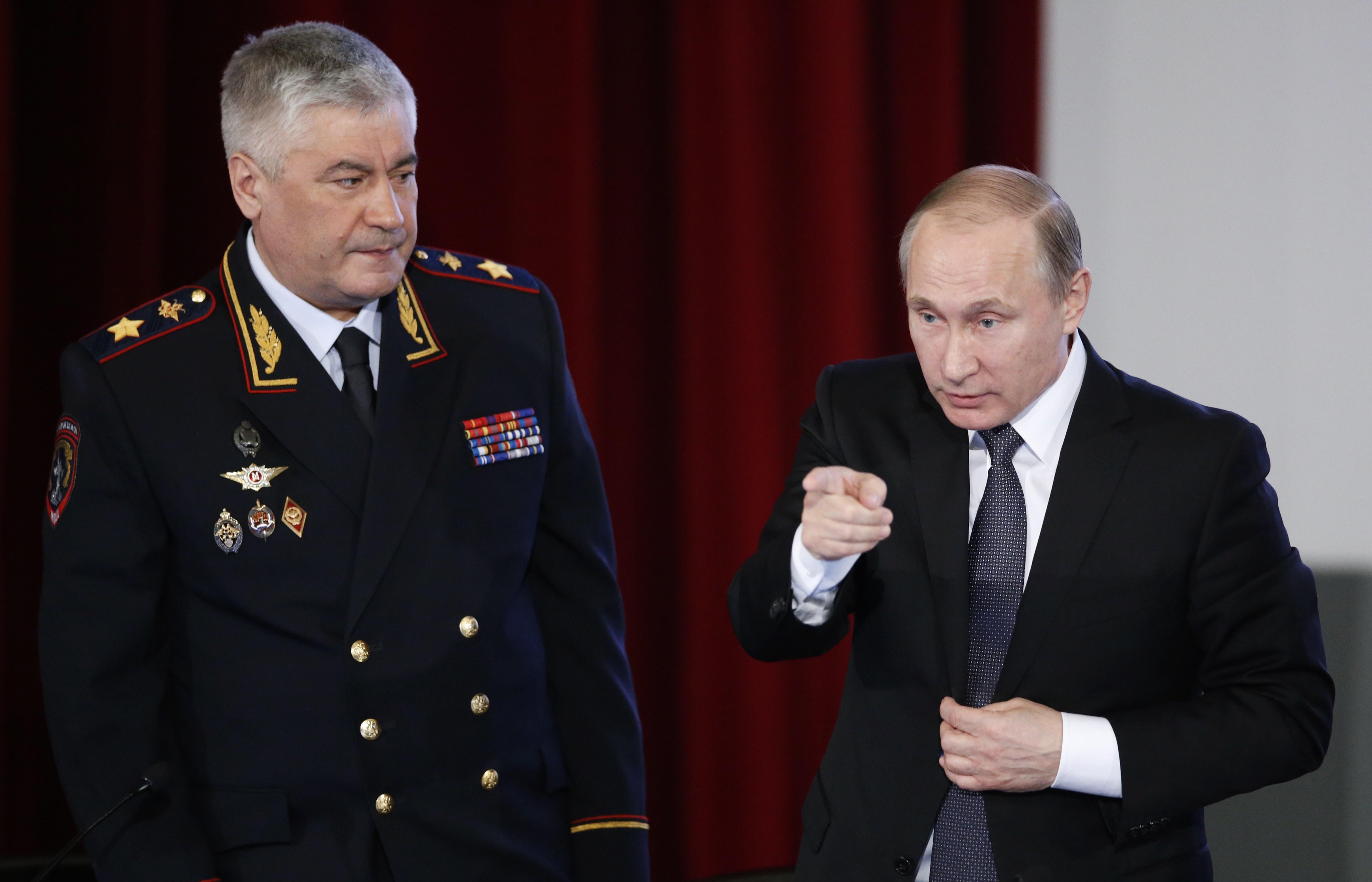
President Vladimir Putin's unexpected announcement that Russian troops would pull back from Syria shouldn't be taken at face value: He's made similar announcements in the past to show Western negotiating partners how constructive he can be. He always has a hidden agenda.
Putin's official explanation of the supposed withdrawal, which should start Tuesday, is that he considers "the tasks set for the Defense Ministry mainly carried out." The Russian military "has allowed Syrian troops and the patriotic forces of Syria to achieve a radical breakthrough in the fight against international terrorism and gain initiative on practically every front."
He's not wrong about the latter: Emboldened and aided by Russian air strikes against the regime's opponents, President Bashar Al Assad's forces have been gaining ground since the start of this year. Yet they haven't captured the all-important city of Aleppo or dealt any spectacular defeats to any of the bigger insurgent groups, including the IS. "Radical breakthrough" is an exaggeration.
Putin, however, teased the more likely purpose of his announcement.
"I hope today's decision will be a good signal for all the sides of the conflict," he said. "I hope this will significantly increase the trust of all participants in the process."
By the process, of course, he means the peace talks in Geneva, which resumed on Monday amid cautious optimism because a shaky ceasefire announced on February 27 has largely held, and the level of violence has been sharply reduced.
Putin used a similar signaling method in June 2014, as talks were beginning to hammer out what became the first Minsk cease-fire for eastern Ukraine. Late that month, Putin asked his rubber-stamp upper house of parliament to withdraw permission for him to conduct military actions in Ukrainian territory. Russia never officially conducted any, though Russian troops, instructors and weapons were even then being sent to aid pro-Moscow rebels in eastern Ukraine. Nonetheless, Putin, according to his spokesman Dmitry Peskov, considered the announcement an appropriate gesture as negotiations between the rebels, Ukraine and the Organisation for Security and Cooperation in Europe were beginning.
That ceasefire appeared to hold only briefly. The fighting soon escalated again, and the Ukrainian army suffered one of its most humiliating defeats, at Illovaysk.
There were plenty of pullback announcements after the second Minsk ceasefire, reached in February 2015. This shaky deal has held up much better than the first one, though neither side has been willing to meet its political conditions. Yet it's still clear that hostilities could resume at any moment and if any troops or weapons have been pulled back, they can be re-engaged within days. OSCE monitors have never been able fully to ascertain where all the troops and weapons are: The rebels haven't given them full access.
In Syria, it's even easier for Russia to conceal troop movements because no one except local human rights activists is able to monitor the situation on the ground, and their ability is limited. Putin said the air base that Russia built in Khmeimim in the Latakia province would continue to operate, as would Russia's naval base in Tartous, to enforce the ceasefire and monitor the peace process. It will be all but impossible to say exactly which troops and equipment will be withdrawn, because Russia has never made it fully transparent what or whom it sent to Syria.
As in Ukraine in 2014 and 2015, Putin is signalling that he is open to a deal, but on his terms. In Ukraine, these terms include a pro-Russian local government and militia in the east. In Syria, he is demanding a seat at the negotiating table for Assad and a role for the president or a designated successor in the country's future.
In both cases, the terms are unpalatable to the opposing side. In Ukraine, Minsk II may never be fully implemented -- and the Russian military presence may continue indefinitely, as in other frozen conflicts. In Syria, Putin is not going to sit and watch the Assad regime be eliminated through talks. Until the process ends in some sort of deal acceptable to him, there will always be a possibility of Russia re-entering the fray.
Just as Putin has never admitted that Russian units were involved in large-scale fighting in Ukraine, he has never announced Russia's intention to bomb any target in Syria except the IS. Yet his warplanes kept hammering opposition groups that are now part of the peace talks. That Putin is willing to pull back, if only in words, as the talks are getting under way, is an indirect admission that the IS was never his primary target in Syria.
Russia and the US have a shared interest in uniting Syrian forces in the fight against IS. Yet they have conflicting visions of Syria's future. The Russian pullback may have caused the Russian ruble's exchange rate against the US dollar to spike, but Putin is probably not done with this war yet. - Bloomberg View